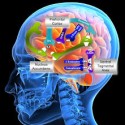People Versus Alcohol and Drugs
IT is a battle that all of us have to join hands and fight. Alcohol and drug abuse is on the increase in our society, especially among the youth.
Young people should guard against becoming victims or risk being given a knockout by alcohol and drugs.
Please stay clear of alcohol and drugs. We know that alcohol and drug abuse can have dire consequences. It always brings sorrow and misery. It is deadly and can kill.
I know that there are many factors and pressures exerted on people and if you don’t have the guts to say “no” then you are most likely to be defeated by alcohol and drugs. Remember that it is you that makes the decision to use those substances.
There are many things to consider before deciding to say “yes” or “no” to drugs or alcohol. Let us analyse our opponents in order to fight them better. We have to ask ourselves questions such as: which drugs are bad and which are good? Why do people use drugs or alcohol? What are the risks? What is addiction? What are the consequences?
Not all drugs have the same potential to cause harm. Some drugs are produced and sold legally for medicinal purposes. These drugs are generally safe to use if you’re taking them at the recommendation and guidance of a doctor or carefully following the directions on the label.
If these drugs are not used as advised, however, there is the potential for harm. Some drugs are legal for adults but not children or teenagers. Caffeine, inhalants, tobacco and alcohol are examples of drugs that are legal for adults. Some drugs are produced and sold illegally. The most commonly used illegal drugs are marijuana (pot, dagga), stimulants (cocaine, crack), LSD, heroin, and club drugs (e.g. ecstasy).
There are lots of reasons why young people start using drugs and alcohol:
• Curiosity
• Experimentation
• Celebration
• Pleasurable effects
• Loss of inhibitions
• Pain relief
• To relieve various emotional problems (e.g. anger, stress, anxiety, boredom or depression)
• To boost confidence
• As a way of rebelling or to express alienation from mainstream society
• To help cope with traumatic life experiences
• Social pressures
• Following a parents example
• For a sense of belonging or social acceptance and to avoid rejection
• Dependency
• It’s glamourised by the media (attractive and captive advertisements)
Drug and alcohol use becomes a problem when it results in negative consequences for the person using the substance. These may be physical, mental, social, emotional, legal, economic or environmental. The consequences include increased health problems such as illness, injuries and physical damage to the body, or death. Personal problems like loss of motivation, physical or psychological dependence and problems at work or school might also arise. Alcohol and drug use also have the potential to strain family relationships and might lead to family breakdown.
Social problems like increased crime and traffic accidents increase the risk of serious drug and alcohol use later in life. Poor judgment skills, which may put you at risk of accidents, violence, unplanned and unsafe sex and even suicide might also result from alcohol and drug use.
A drug-related conviction may result in a fine or prison sentence as well as a criminal record, which could affect future employment opportunities. Some people can develop physical or psychological dependency on drugs and/or alcohol. When a person continues to use a drug despite negative consequences to him/her or to other people, this is often referred to as drug or substance abuse and the person is then hooked/addicted.
Youth often don’t see the link between their actions today and the consequences tomorrow. Those that are at risk of developing serious alcohol and drug problems include those with a family history of substance abuse; who are depressed; who have low self-esteem and those who feel like they don’t fit in or are out of the mainstream.
The consequences of drug/alcohol use can be physical, emotional and social. An overdose of any drug can cause serious and sudden physical or mental damage and can cause liver and kidney damage. People who administer drugs using needles risk infections such as hepatitis or HIV/AIDS. Substance use during pregnancy can also harm the foetus. People who use drugs that have been obtained illegally can never know what they are taking as some drugs are mixed with other drugs or chemicals that can be harmful.
On the emotional part, drugs can prevent the development of healthy coping styles. Some drugs can cause short-term confusion, anxiety or mental disturbance. Drug and alcohol abuse can also result in personality disturbances, learning problems and loss of memory. Most drugs and alcohol can reduce physical coordination, distortion of the senses and impairment of memory. These effects can lead to serious safety risks especially if the person uses drugs/alcohol while operating a vehicle or operating machinery.
The use of drugs/alcohol is as well associated with violence and crime. Date rape is one example where the effects of drugs and alcohol can incapacitate the victim and make the person unable to resist the sexual assault.
To all the learners/students that have to go back to school, please stay away from alcohol and drugs and join the fight by talking to your friends that may be using the substances to quit. The people will and continue to fight against alcohol and drugs.
source: New Era

